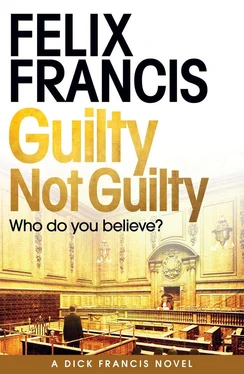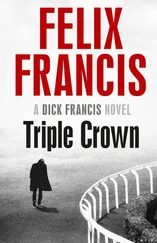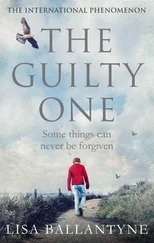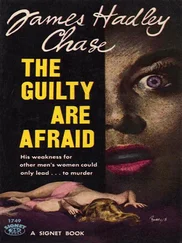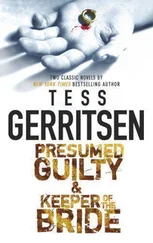‘Yes,’ Joe said.
‘But when you were first questioned by the police, did you not deny ever having been in Banbury on that day, and then, when confronted with the automatic number plate recognition evidence that showed the van on the M40, did you not then deny being the driver? Were you lying to the police then, Mr Bradbury, or are you lying to us now?’
‘I was lying to the police then,’ Joe said at little more than a mumble.
‘And why would that be?’ the prosecutor asked.
‘I don’t know. Maybe I panicked.’
‘Now let us turn to this concrete post that you claim to have hit. Where is this post exactly? Does it also have white paint on it from the Transit van?’
‘I don’t know of its exact location. I can’t remember.’
‘I suggest, Mr Bradbury, that you can’t remember because the post doesn’t exist. I further suggest that the white paint found on the back of Mr Gordon-Russell’s car was from the white van you drove to Banbury. And you went there with the express intention of murdering Mr Gordon-Russell and that is exactly what you attempted to do by crashing the van into his car.’
‘No,’ Joe said. ‘I can’t think why you would say that.’
‘Maybe because it’s true.’
The prosecutor picked up yet more papers.
‘Finally, let us turn to this supposed telephone call of the Tuesday evening. I have here the phone records of both Mrs Gordon-Russell and yourself, for your landlines and mobile phones. In them, there is no indication of any call from her to you on that evening, from any of her numbers to any of yours. How do you account for that, Mr Bradbury?’
‘I don’t know,’ said Joe. ‘She definitely made the call. Perhaps she used a public call box.’
‘If so, then that too would be shown on the documentation. But it isn’t. The records show that only one call was received by you on that evening, at five past eight, from your mother.’
‘Then the records must be wrong. I’m telling you, Amelia called me.’
‘I suggest,’ said the prosecutor, ‘that no such call was ever made. That you made it up to justify your actions in going to your sister’s house on that Wednesday morning, and there you strangled her as the severe action that you had previously threatened her with.’
‘No,’ Joe shouted at him in desperation. ‘That’s not true. I didn’t kill her.’
I looked at the jury and wondered how many of them were believing him now.
And then, if things weren’t bad enough already for Joe, they were about to get a great deal worse.
The second witness for the defence was Rachael Bradbury, Joe’s wife.
In the United Kingdom, as in the United States, other than in very limited circumstances of domestic or child abuse, a wife cannot be compelled to give evidence in court against her husband, nor a husband against his wife.
This is known as spousal privilege and stems from the English common law position that a husband and wife are considered, by ‘legal fiction’, to be one person.
Every individual has the right in law not to incriminate themselves through their testimony, a right originally established by common law in England, and by the fifth amendment to the constitution in the United States, which states that ‘no person... shall be compelled in any criminal case to be a witness against himself’. Hence the term ‘taking the fifth’ as the excuse for a witness not to answer a question in a US court.
It is also the basis for the ‘right to remain silent’ on arrest and in police questioning.
As ‘one person’, therefore, a wife also has the right to remain silent and cannot be forced to testify against her husband.
But she could do so voluntarily.
Or by mistake.
Rachael had been called by the defence to further the claim by Joe that he had received a telephone call from Amelia on the night before she died.
Having given her testimony in answer to questions by the eel, she was then open to cross-examination.
‘Hello, Mrs Bradbury,’ said the prosecutor, smiling at her. ‘It must be very difficult for you to come to this court and give evidence when your husband is sitting in the dock.’
‘Yes, it is,’ she replied, glancing across at Joe. ‘Very difficult indeed.’
‘Now, tell me,’ went on the prosecutor, ‘did you personally speak with Mrs Gordon-Russell on the telephone during the evening in question?’
‘She spoke to my husband.’
‘But not to you?’
‘No,’ she said. ‘But I could hear their conversation.’
‘All of the conversation?’ asked the prosecutor. ‘Or just your husband’s side?’
‘Well, just his side, I suppose, but I could hear a voice from the other end of the phone even if I couldn’t hear the exact words.’
‘Then I suggest that your evidence is of no value to the court. For all you know, your husband could have been talking to the speaking clock. Isn’t that right, Mrs Bradbury?’
‘The speaking clock doesn’t call us,’ she said. ‘I know he was talking to his sister.’ There was a touch of desperation in her voice, as if she was trying to convince herself as much as the jury, and they all heard it.
And the prosecuting barrister wasn’t finished with her, not by a long way.
‘Now, Mrs Bradbury,’ he said. ‘Were you aware at the time that your husband received a hundred thousand pounds from the sale of some of your mother-in-law’s belongings?’
‘Yes, of course,’ replied Rachael. ‘It was a gift from his mother. I was there when she gave it to Joe.’
‘And what did you do with the money?’
She seemed somewhat surprised by the question, but I had briefed the barrister and we both thought it was a question worth asking.
‘Some of it went to paying off debts, and some on a new car.’
‘A black Nissan?’
‘Yes.’
‘So were you heavily in debt before he received the hundred thousand?’
‘Quite heavily,’ she said. Then she smiled. ‘You know what it’s like with three small kids. They can be a considerable draw on the family finances.’
Perhaps she said it as a way of trying to garner a little sympathy from the jury. But she didn’t get it.
The prosecutor pounced. ‘Did your mother-in-law not help you out with some of your children’s expenses, as their grandmother?’
‘You’ve got to be joking. She was tighter than a duck’s arse when it came to money.’ She emitted a hollow laugh.
There was a long pause in which her laughter died away. And no one else joined in.
‘And yet,’ said the prosecutor gleefully, ‘you would have us believe that she simply gave your husband a hundred thousand pounds. I suggest to you that the hundred thousand was stolen by your husband because of the financial difficulties in which you found yourself as a couple. It was just too good an opportunity not to take what you felt was rightly yours, don’t you agree, Mrs Bradbury?’
Just as at the funeral, Rachael stupidly couldn’t resist having a dig at her late mother-in-law.
‘She wouldn’t miss it,’ she said. ‘She had millions.’
There was a groan from the dock that the whole court could hear, in spite of the glass panels. Rachael looked over to her husband with shock and surprise on her face, but the damage had been done, and everyone knew it — everyone, that was, except her. But she soon worked it out.
‘No further questions,’ said the prosecutor, and he sat down.
Rachael, now in floods of tears, was dismissed.
How the fortunes in a criminal trial could ebb and flow like the tide.
Such was the power of cross-examination.
Just a few hours ago, I’d have staked my house on an acquittal, but now, and especially after Rachael’s debacle, I was more confident of a conviction.
Читать дальше
